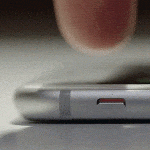|
blackberry deathsnipe
|
|
|
|

|
| # ? May 9, 2024 11:32 |
|
quote:BlackBerry has more than 70 security approvals and certificates – more than any other mobile solution. Wow, 70 is like, a lot right?
|
|
|
|
I mean, if BB has 70 other companies must have like what only 30. I can't imagine Apple has more than 30.
|
|
|
|
Pinterest Mom posted:John Chen is a distinguished and proven leader in the technology industry. Prior to joining BlackBerry, he served as Chairman and CEO of Sybase Inc., where he developed and led the company’s re-invention from a mature, slower-growth technology company into a $1.5 billion-plus high-growth innovator. Under his direction, Sybase became the leading provider of enterprise mobility and mobile commerce solutions, achieving 55 consecutive quarters of profitability. And was then sold to SAP
|
|
|
|
we employ a lot of canadians and provide a lot of tax revenue, you better not gently caress with us, eh! ...please help us
|
|
|
|
lol who the gently caress are sybase
|
|
|
|
Pinterest Mom posted:I join the many, many people across Canada calling on him to apologize and explain why he chose to use derogatory references to people with disabilities in a petition ostensibly about technology. We are dismayed by Mr. Qaadri’s behavior that reflects poorly on all of Canada – and especially to Canadians with disabilities who are incredible contributors to the nation. Bonzo posted:Qaadri called the assembly's policy "handicapping, retarding and penalizing MPPs" — much to the ire of Harris, who thought his use of language was inappropriate. goddamn thats tumblr-level outrage
|
|
|
|
that's like the only non-offensive use of "retard" possible. well played.
|
|
|
|
rrrrrrrrrrrt posted:BlackBerry has more than 70 security approvals and certificates – more than any other mobile solution. what, like in a row? it's just how many times i have to pull my battery and input my password until it works, isn't it
|
|
|
|
blackberry is secure* *as long as you trust blackberry not to intentionally or otherwise compromise their encryption keys. you know, like they have multiple times already whenever an oppressive government asks them nicely. maybe their new business model can be selling state secrets from all the shitlords still using blackberry infrastructure in tyool 2015
|
|
|
|
is blackberry Huawei's picture of Dorian Grey, since Huawei went from android rimpho knockoff company to east asian mobile powerhouse?
|
|
|
|
Mister Macys posted:is blackberry Huawei's picture of Dorian Grey, since Huawei went from android rimpho knockoff company to east asian mobile powerhouse? no, Huawei sells a ton of networking poo poo and their stuff is the cheap option for running your mobile networks, it's the same poo poo that is keeping Nokia alive
|
|
|
|
Mister Macys posted:is blackberry Huawei's picture of Dorian Grey, since Huawei went from android rimpho knockoff company to east asian mobile powerhouse? huawei is literally run by the Chinese military with the goal of replacing western telecom equipment filled with western espionage backdoors with Chinese made equipment with home grown backdoors, and not just in the domestic market. BlackBerry was actually built to be secure and later compromised when smacked in the face with the realty of governments. remember when the pushed literal spyware to everyone's phone in some Arabian country (Bahrain?)
|
|
|
|
Thanks Ants posted:lol who the gently caress are sybase they make a relational database and bunch of other garbage.
|
|
|
|
The Management posted:huawei is literally run by the Chinese military with the goal of replacing western telecom equipment filled with western espionage backdoors with Chinese made equipment with home grown backdoors, and not just in the domestic market. i don't remember that, but i do remember the news bit of India telling rim straight up- if they want to do business in their country, they'd damned well better give them access to all data traffic for phones within their borders
|
|
|
|
rim put some servers in Saudi and under Saudi security's jurisdiction to get a ban on blackberry lifted
|
|
|
|
Subjunctive posted:rim put some servers in Saudi and under Saudi security's jurisdiction to get a ban on blackberry lifted maybe that's what I was thinking of. it's been forever since I read it.
|
|
|
|
Mister Macys posted:maybe that's what I was thinking of. it's been forever since I read it. nah india also did that
|
|
|
|
and if india and saudi arabia have done it you know loving well the us of a did years ago so bby's security isn't worth poo poo all against state actors, or anyone affiliated with state actors (read nsa contractors). but god drat it it's secure enough for 
|
|
|
|
many wordsquote:The Inside Story of How the iPhone Crippled BlackBerry
|
|
|
|
quote:Virtually every one of the 1 million Storm phones shipped in 2008 needed replacing, Verizon’s chief marketing officer, John Stratton, told Mr. Balsillie. Many of the replacements were being returned as well. Storm was a complete failure, and Mr. Stratton wanted RIM to pay. lol.
|
|
|
|
lol management failure at the highest level sank their fortunes.
|
|
|
|
Thanks Ants posted:lol who the gently caress are sybase sybase were the original authors of microsoft sql the fact that you have never heard of them, but ms sql is an industry leader, should tell you everything you need to know about sybase sales and marketing.
|
|
|
|
Bonzo posted:And was then sold to SAP that was pretty much the best possible outcome for sybase
|
|
|
|
qirex posted:many words the storm was their most exciting product. you never knew what feature would randomly activate.
|
|
|
|
the storm ads were just great :pushes clickyscreen: WHOA. DID YOU SEE THAT.
|
|
|
|
omg i forgot the screen was a giant button lmao
|
|
|
|
pram posted:omg i forgot the screen was a giant button lmao did you actually ever use a storm it was loving lollers
|
|
|
|
no. my mom had a torch and it was the biggest pile of poo poo ive ever seen
|
|
|
|
there was the pearl that would erase messages at random when running out of memory
|
|
|
|
SIGSEGV posted:there was the pearl that would erase messages at random when running out of memory i had one and it was worse than that. it would receive the message, confirm to the carrier that you received the message, flash the 'new message' icon for a split second without lighting up the notification led or playing a noise and immediately delete it. it would do this for every incoming message until you realized it was happening and restart the phone. oh and while using the phone it gave no indication that anything was wrong. everything still functioned like normal. i had a span of several days in college where i thought i hosed up somehow because everyone was ignoring me and everyone thought i was a dick for not responding to anything.
|
|
|
|
blackberry invented force touch *unusable implementation causes $100 million in losses and sours biggest business relationship*
|
|
|
|
I told so many poor bastards to take their broken storm back to the store but the major audience was Tech Dads so they got pretty much what they deserved
|
|
|
|
the pearl 8130 owners though were 99% just regular people and that no space text messaging thing was brutal and took two years to finally fix lol
|
|
|
|
that article is a bit too derogatory towards the iphone it makes it sound as if their downfall was mainly to bad luck instead of selling lovely products for their whole business career even while some comes along with something decent.
|
|
|
|
ahmeni posted:the pearl 8130 owners though were 99% just regular people and that no space text messaging thing was brutal and took two years to finally fix lol when i found the bug i took it back to the verizon store and they told me to just update the OS. then of course i get home and find that there's no loving update. then i bought an android which would receive texts reliably- but it'd delete all of them without warning every few months
|
|
|
|
really more of a lateral move
|
|
|
|
~Coxy posted:that article is a bit too derogatory towards the iphone to be fair Literally Any Phone was going to take down blackberry
|
|
|
|
I think I might read that book, the autistic side of me likes books about trainwrecks
|
|
|
|

|
| # ? May 9, 2024 11:32 |
|
Nintendo Kid posted:to be fair Literally Any Phone was going to take down blackberry yeah, those palm phones, the Moto razr, and the samsung blackjack were really kicking blackberry's rear end
|
|
|
































